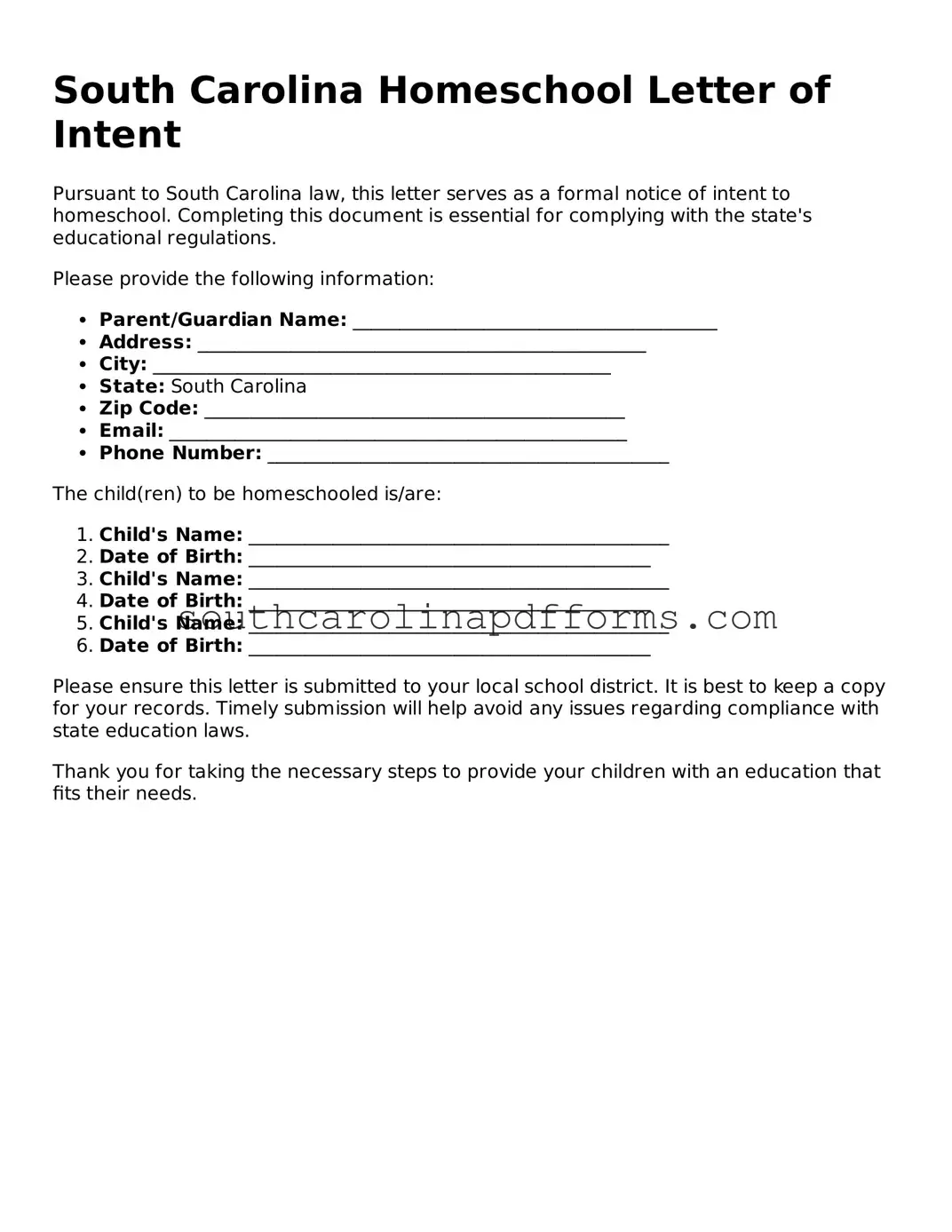Attorney-Approved South Carolina Homeschool Letter of Intent Document
The South Carolina Homeschool Letter of Intent is a formal document that parents must submit to the local school district to notify officials of their intention to homeschool their children. This letter serves as a crucial first step in the homeschooling process, outlining the family's commitment to providing an educational environment outside of traditional public or private schools. Understanding the requirements and implications of this form is essential for parents embarking on the homeschooling journey.
Access Homeschool Letter of Intent Here
